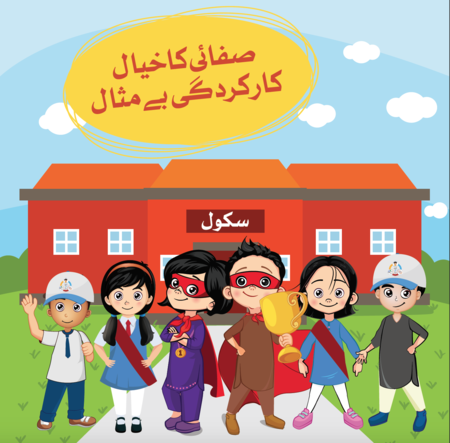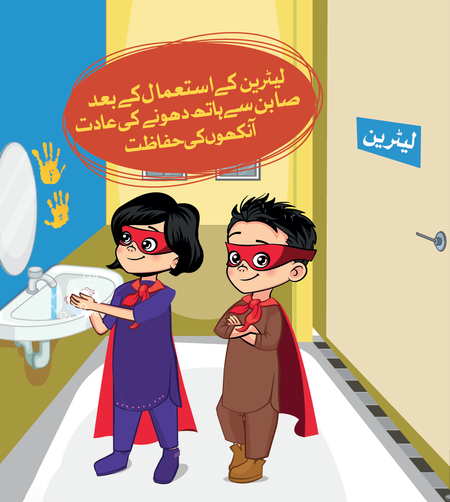National Burden of Trachoma- An estimated four million people live in trachoma endemic areas across four provinces of Pakistan, and that active trachoma is confirmed in five districts, with over 26,954 people in the advanced stage of the disease, trichiasis (GET2020).
Preventable infectious blindness spreads by eye-seeking flies that breed in human faeces, fingers, hands, clothing, or bedding contaminated with discharge from the eyes and nose of an infected individual. Beginning in childhood it primarily affects children aged 1-9 and women and girls as they are often the primary caregivers of children. Repeated infections lead to irreversible blindness resulting in long-term negative impacts on health as well as an ongoing cycle of poverty and stigma that leaves people unable to work, go to school, or participate in family and community life.
According to Pakistan Facial & Environmental (F&E) situation analysis 2017, the threshold of disease is comparatively higher in the districts where access to water and sanitation services is limited coupled with poor hygiene behaviours, and household infrastructure and public health services are inadequate. This is compounded by a lack of knowledge about the disease, its transmission, negative impacts and its appropriate prevention.
The Government of Pakistan aims to eliminate blinding trachoma as a growing public health problem in the country by the year 2020 as part of World Health Organization’s (WHO) led global effort under SAFE strategy 1996-2020. This includes Surgery for trachomatous trichiasis, Antibiotics for treating ocular C. trachomatis infection, Facial cleanliness and Environmental improvements including improved access to water and sanitation for reducing transmission.
“Pakistan Trachoma Elimination Project (PTEP)” is a complementary initiative by Fred Hollows Foundation (FHF) with the financial support of Department for International Development (DFID) towards the GoP’s program for the elimination of trachoma in Pakistan as a public health problem. Aligned to Pakistan Trachoma Action Plan (TAP) and within the overall strategic direction of the National Trachoma Task Force, the PTEP is anticipated to better complement the overall country aim through systematic collaborative efforts of FHF Pakistan and Church Blind Mission (CBM) to undertake the S and A components.
Whereas, WaterAid Pakistan, being WASH-focused organisation, has partnered with implementing organisations, FHF Pakistan and CBM, to provide technical guidance and support to them solely on Behaviour Change Communications (BCC) element of the F&E component using its organisational BCC approach, knowledge and proven experience in WASH behaviour change.
Key facts
Project Duration: April 2019 - May 2021
Donor: Fred Hollows Foundation (FHF) UK
Partnerships: Fred Hollows Foundation (FHF) Pakistan, Church Blind Mission (CBM), Ministry of Climate Change (MoCC) and provincial health departments.
Project districts: Mardan, Karak, Chitral, Mansehra in Khyber Pakhtoonkhwa (KP) and Shadadkot in Sindh.
Beneficiaries: School children in 1200 primary schools with a particular focus on girls schools.

